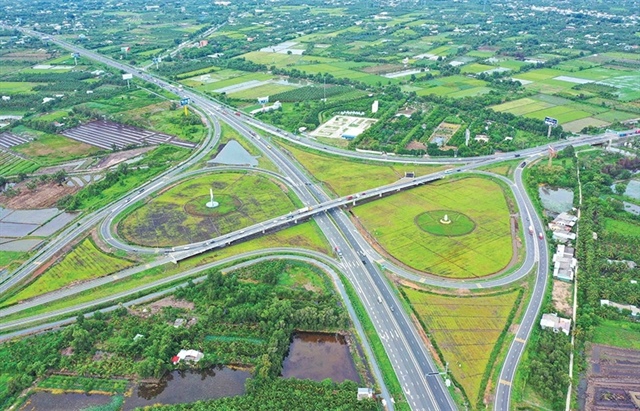Japanese expert says Vietnam stuck in middle income trap
Japanese expert says Vietnam stuck in middle income trap
There are at least five signs showing that Vietnam has fallen into the middle income trap, a Japanese economics expert who has 20 years of experience in doing research on the Southeast Asian country told Tuoi Tre on Monday, reaffirming what he remarked at a conference last month.

Professor Kenichi Ohno, who teaches at the Tokyo-based National Graduate Institute for Policy Studies (GRIPS), asserted that the remark was based on his extensive experience about Vietnam.
Prof. Ohno compared the middle income trap to high blood pressure, a condition patients cannot tell exactly when they began suffering but they have to start dealing with it right after noticing its symptoms.
The trap is an economic development situation where a country that attains a certain income thanks to natural resources and advantages will get stuck at that level and cannot become richer, the Japanese professor told Tuoi Tre shortly after arriving in Hanoi to attend a conference slated for Tuesday, at the invitation of Vietnam’s Central Committee of Economics.
In 2008 Vietnam became a middle income nation with its per capita income reached US$1,000. But the signs of falling into the middle income trap have since become clearer, Prof. Ohno added.
At a seminar jointly held by the GRIPS and the National Economics University in Hanoi on March 26, Prof. Ohno also said Vietnam fell into the trap only a few years after it became a middle income country and the trap is not a risk looming large but a reality in Vietnam, Saigon Times Online reported.
Consequences to follow
In his interview with Tuoi Tre, Prof. Ohno listed out five signs confirming that Vietnam is stuck in the middle income trap.
These include a slowdown in GDP growth, poor labor productivity, ineffective economic transition, low global economic rankings, and finally, a number of growth-related issues such as pollution, corruption, real estate bubbles, and the rich and poor gap.
There will be consequences if Vietnam fails to escape from the middle income trap, the professor warned.
Vietnam will continue receiving foreign direct investment, but its GDP growth will slow down, he said.
If the country’s per capita income cannot jump higher, elder people will have low income and face difficulty affording better standards of living when the population gets older, the Japanese explained, adding that there will be risks of social instability.
One of the solutions to helping Vietnam get out of the trap, according to Prof. Ohno, is that the nation has to take action instead of merely talking about the trap.
Prof. Ohno suggested that Vietnamese leaders should change their way of thinking and formulating policies.
In dealing with a specific issue, Vietnam usually organizes seminars, carries out research, and composes proposals, but it often does not take much action, he said, insisting this must be changed.
tuoitrenews



















